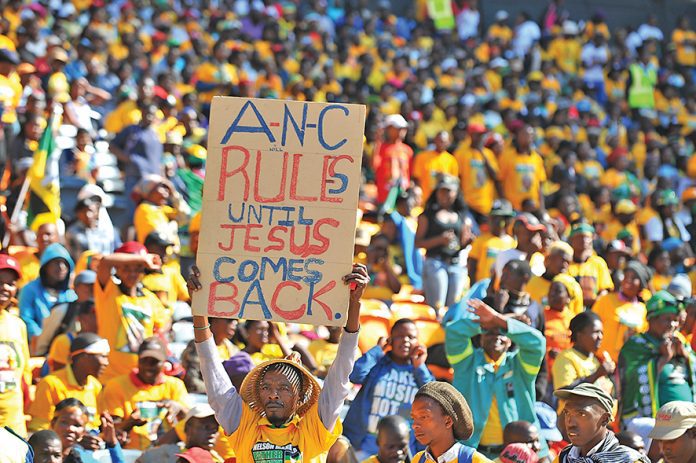The ANC, the battle-scarred movement of the people, needs rescuing. But who is there to save it from impending implosion, this oldest and once endearing political movement that has for the last century and part of the first quarter of the new one, dominated the country’s political landscape?
It is worth highlighting its origins. It was born two years after the formation and coalescence, or ganging up of colonial and oppressive forces comprising the old Transvaal, Orange Free State, Natal and Cape Colony, to form in 1910 the Union of South Africa under the tutelage of the British government, and under whose colonial government black people would continue to be oppressed and denied the right to their land.
Worth noting also is that the ANC’s birth occurred in the sanctuary of the womb of the church in Mangaung, Bloemfontein, some 110 years ago.
Its leadership throughout the liberation struggle epoch was in part made up of people associated with the church, notably Inkosi Albert Luthuli, a lay preacher of the church, and Oliver Tambo, a devout Anglican who was on the verge of entering a theological seminary to train for priesthood when the 1960 Sharpeville massacre occurred.
Priesthood would have to take a back seat. Weightier thoughts of liberating his land from oppression would occupy his mind.
The massacre at Sharpeville drastically changed his perspective about the form in which the struggle would have to be prosecuted. The massacre – the annihilation of pass laws protesters by the oppressive regime – required the formation of a liberation army under the banner of Umkhonto we Sizwe. Even as a devout Christian, Tambo knew of the principles of just war doctrine, and was willing to put it into practice.
The above paragraphs seek to put things in perspective; to explain the kind of noble ideals harboured by the ANC, and to characterise the ANC as a movement of intellectuals and committed churchmen and women, whose aim was more liberatory than corruption and malfeasance – a cancer that is destroying the organisation today.
The central question, though, is why, in light of the illustrious record the ANC enjoyed over many years, is the movement losing its shine? Former president Thabo Mbeki often shares with all who care to listen his view that as the ANC grows, it gets infiltrated by tendencies that are foreign to it.
Might we conclude, if we stay with Mbeki’s theory, that political miscreants have found a home in the ANC?
We have to ask, what has the church got to say about the modern-day ANC whose moral authority has been undermined by its own missteps that are at odds with the ideals of Tambo, Nelson Mandela, Chris Hani and many upright leaders of honour associated with the party?
What does the South African Council of Churches of Reverend Frank Chikane have to say about the ANC in the midst of the scandals and malfeasance heaped upon its name? Chikane, and many church leaders collaborated with the ANC to bring about political changes at the height of apartheid oppression.
In light of this, how do we answer the perennial question, what went wrong?
Several big ANC names are featuring in Chief Justice Raymond Zondo’s latest report following the conclusion of the State Capture Commission as candidates for criminal investigation.
Why does it appear that the church, in whose womb the ANC was born, has no word of chastisement for her errant child?
Where is her prophetic voice when evil in our country is so widespread?
- Mdhlela is a freelance journalist, an Anglican priest, an ex-trade unionist and former publications editor of the South African Human Rights Commission journals.

Follow @SundayWorldZA on Twitter and @sundayworldza on Instagram, or like our Facebook Page, Sunday World, by clicking here for the latest breaking news in South Africa. To Subscribe to Sunday World, click here



